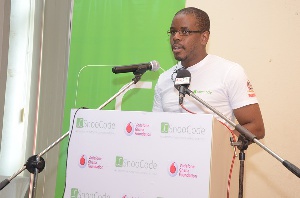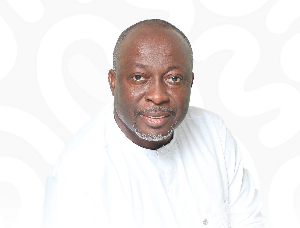A Ghanaian technology innovator and product of Vodafone’s, “Mobile for Good", initiative, has been shortlisted for the UK Royal Academy of Engineering Award.
Sesinam Dagadu’s nomination, as one of Africa’s future technology pioneers, comes on the back of his new product, “CodeRed”, an offshoot of SnooCode, which is designed for the ambulance service to reduce emergency response times. The CodeRed software helps ambulances navigate dense urban areas to deliver emergency help to Ghanaians.
While affluent areas have well-established addressing systems, challenges remain in the informal settlements. CodeRed divides regions by simple codes using numbers and letters, and maps out areas to make them easier to navigate.
The UK’s Royal Academy of Engineering brings together the most successful and talented engineers from across the engineering sectors to advance and promote excellence in engineering in the world.
Sesinam joins a list of 15 other shortlisted innovators across Africa, who will undergo a six-month intensive training and mentorship in business and entrepreneurial skills before a winner is selected to receive the first prize of £25,000.
Commenting after the nomination, Sesinam said:
“This is certainly great recognition for the hard work we have put in all these years. Inasmuch as it is flattering, one thing is certain – we are under pressure to deliver even better outcomes in the future and we are ready for it. This is just the beginning, there’s a store of solutions we are creating to improve lives and businesses.”
Head of Vodafone Ghana Foundation, Ebenezer Amankwah said: “What Sesinam and his team have achieved in such a short time is indeed exciting. We, at the Vodafone Foundation, are happy to have been a part of this success story. We can only look forward to more ground-breaking innovations as the years come by.”
CodeRed is now used in 32 ambulance stations covering 8.7 million Ghanaians in Accra and Kumasi with plans to grow expand beyond Ghana with support from the Vodafone Ghana Foundation.
It is aimed at helping Ghana’s Ambulance Service meet the World Health Organization standard of an eight-minute reaction time at all times including crises situations, natural disasters and disease outbreaks.
Business News of Friday, 20 January 2017
Source: Global Media Alliance
Ghanaian innovator shortlisted for top Award
Entertainment












